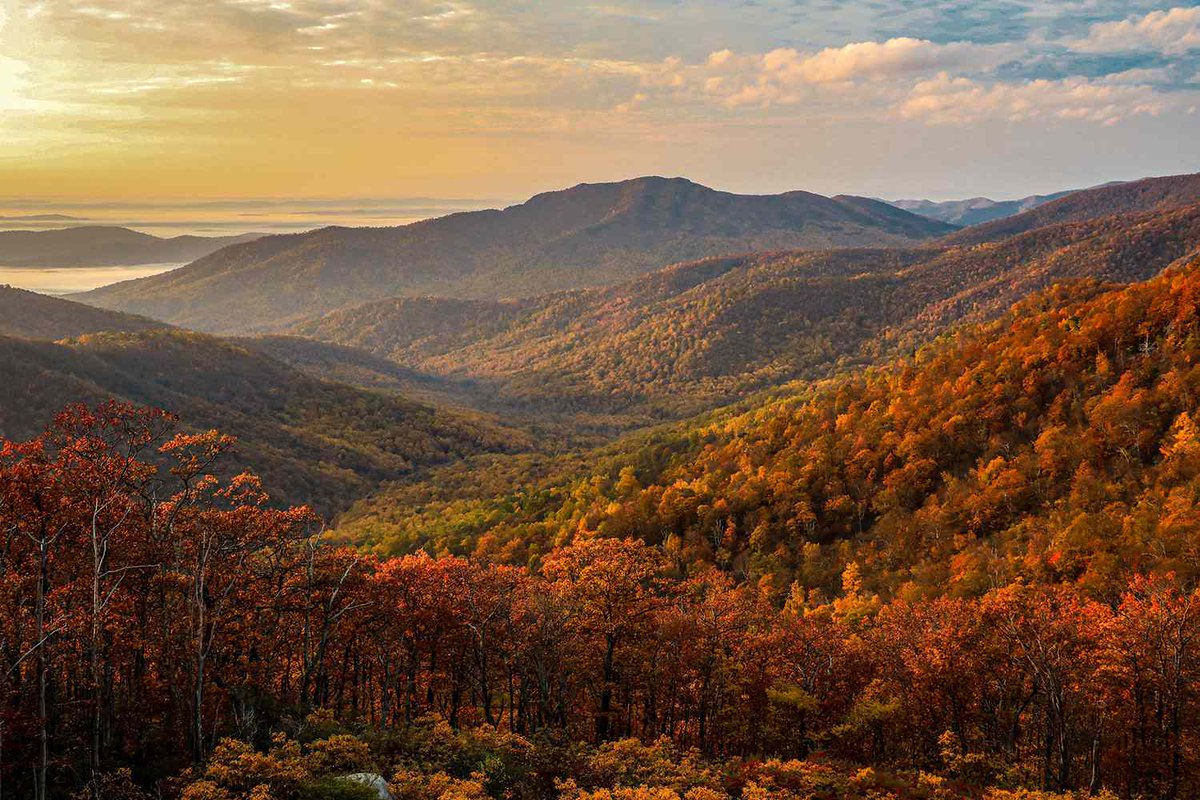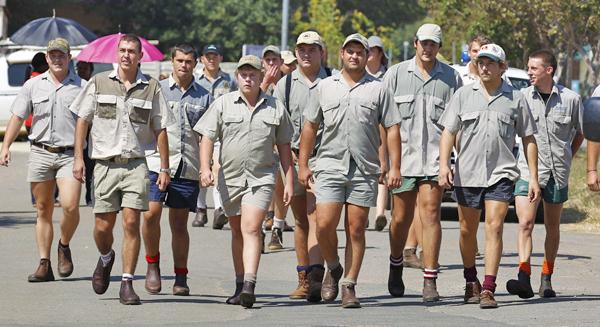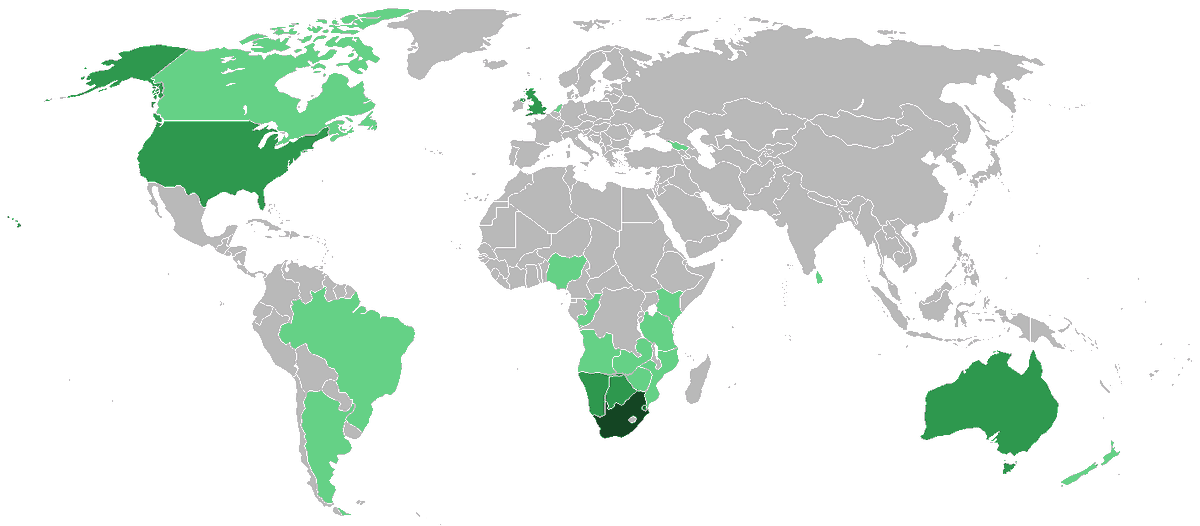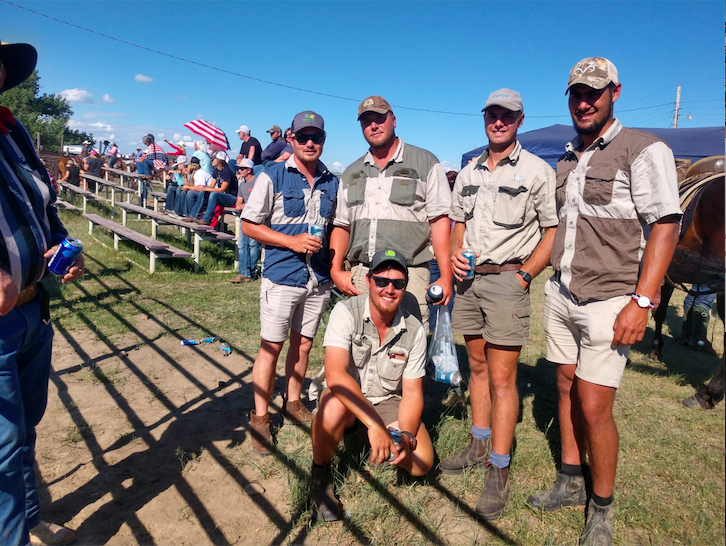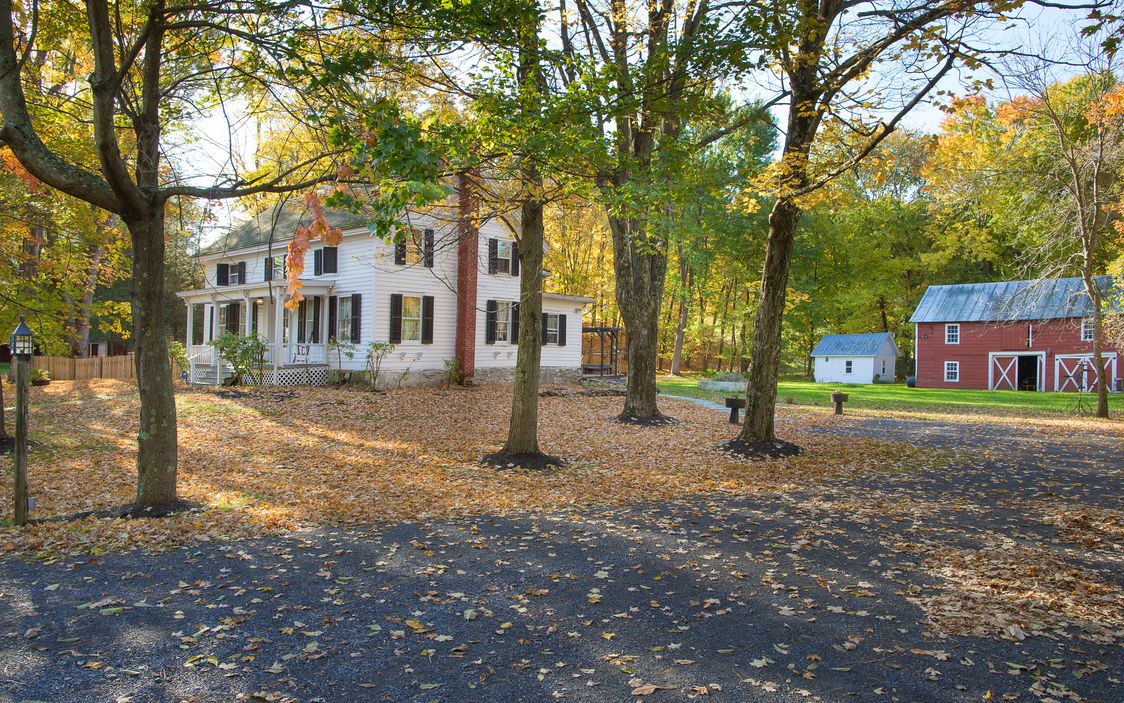LONG 🧵on Rhodesia: Here’s what you need to know about this extraordinarily controversial nation, and why it still matters today (list of resources for further study at the end of this thread): 

*Briefly: my own interest in this topic comes from living in Northeastern South Africa for a time, very close to the Zimbabwe border. I knew many former Rhodesians & the inflammatory rhetoric about them did not hold up to knowing them in real life. They are/were wonderful people. 

Most have no idea what or where Rhodesia was. The first time that many Americans had even heard of it was in 2015. Dylan Roof, who murdered 9 in Charleston SC, maintained a blog called “The Last Rhodesian,” and a picture of a jacket he owned with a Rhodesian flag circulated. 

While Rhodesia hadn’t been in the news for decades (becuase it no longer existed), in 2018 the NYT ran a piece called “Rhodesia’s Dead — but White Supremacists Have Given It New Life Online.” nytimes.com/2018/04/10/mag…
For many on the right, the fact that the NYT was writing hit pieces on Rhodesia confirmed that there must be something of value in its history, and a new period of Rhodesia interest was born. There are now far more familiar with this nation’s history than a decade ago. 

Rhodesia as a country/culture/people is synonymous with “white supremacy”- in fact, you will never see the words separated in mainstream commentary. Like Apartheid South Africa, Rhodesia can be used as a quick, convenient way of completely disregarding an opponent's arguments. 

In this way, suggesting anything positive about Rhodesia would bear a striking similarity to the experience of someone who would dare to utter anything positive about any flag, monument, or leader associated with the Confederacy. 

The anger and mistrust of the powers that be & any other institution canceling people because of a lack of conformity to the “current thing” has caused an increasing interest in historical (alleged) bastions of right-wing ideology. Rhodesia is no exception. 

So the question is this: what does Rhodesia represent? Was it a Nazi-esque, genocidal hell-hole? Was it a perfectly ruled paradise due to white-majority rule? Obviously, neither of these is true- history is complex. But there is a lot to take away from this unique place in time.
The independent state of Rhodesia existed from 1965-1980. Named for the visionary & financier Cecil Rhodes, it formally contained the land that is now Zimbabwe, Zambia & Malawi. This territory fit into Rhodes’ plan for a Capetown-Cairo railroad during the late 19th century. 

Like many colonial regions, Rhodesia was essentially self-governing. A stream of migrants from Britain & South Africa poured into the fertile land throughout the late 1800s and early 1900s. The climate was idyllic & relationships with local tribes were typically amiable. 

Contrary to many stereotypes, large portions of sub-Saharan Africa are beautiful, verdant, & have an extremely high level of economic productivity. This area (which included parts of colonial powers) is some of the best farmland in the world. 

Over several generations, a distinctly British colonial culture had developed in what became Rhodesia. Rule of law, order, civility, agriculture & Christianity was the norm. But Africa was changing. Fast. 
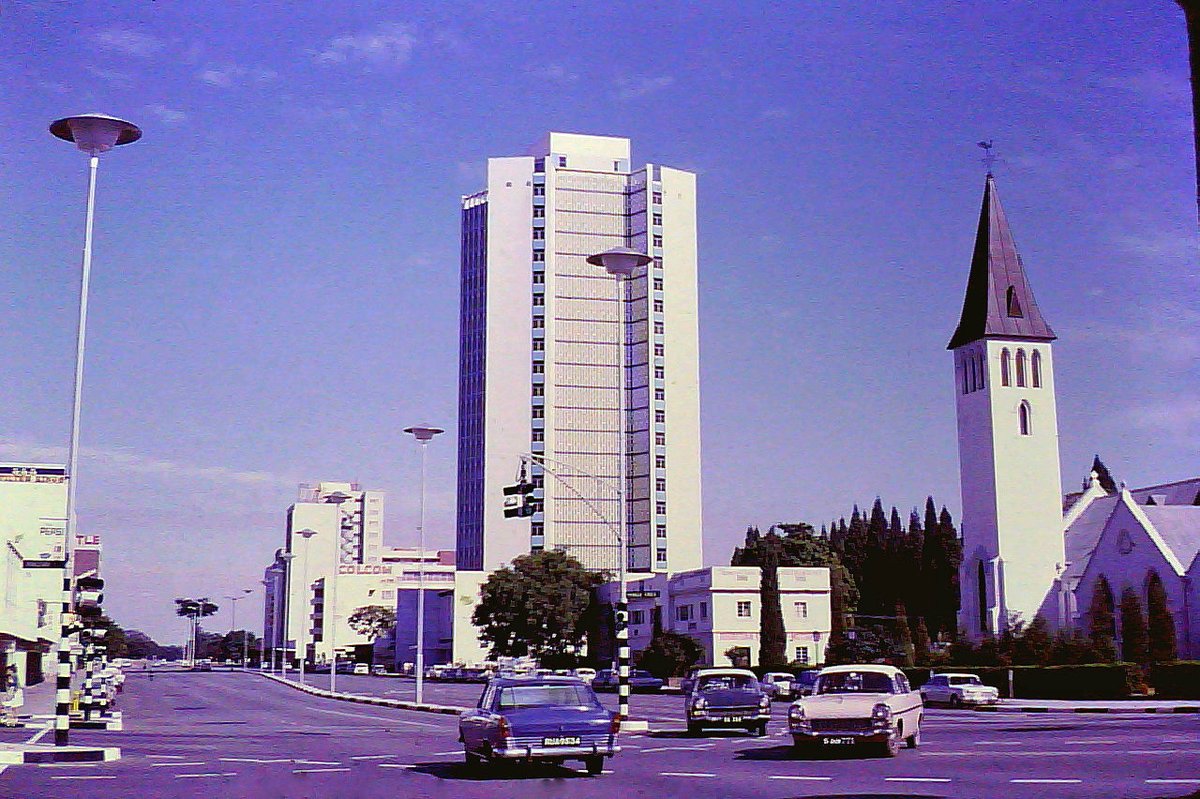
The post-WWII paradigm was a worldwide collapse & abandonment of European colonies. While often hailed as a period of triumph against oppression, the human cost of this collapse was catastrophic and unparalleled in human history. We are still experiencing its effects. 

Examples of colonial collapse are endless, but here’s the basic format:
-Massive national debt from WWII makes it difficult to maintain colonies
-Communist subversion/funding from USSR makes colonies dangerous
-A hot war erupts between the Colonial power & communist guerrillas
-Massive national debt from WWII makes it difficult to maintain colonies
-Communist subversion/funding from USSR makes colonies dangerous
-A hot war erupts between the Colonial power & communist guerrillas

-The mother country creates a “democracy” & Europeans leave
-Communists immediately take control through intimidation
- Europeans that are left flee the violence by emigrating to a safer region or to Europe/US/Australia
- The ruling party initiates genocide against its rivals
-Communists immediately take control through intimidation
- Europeans that are left flee the violence by emigrating to a safer region or to Europe/US/Australia
- The ruling party initiates genocide against its rivals

-The nation descends into anarchy, terrorism, starvation, & mass killing
-Western leftists (& many on the right) celebrate the “achievement of democracy”
-The Western media fawns over newly installed dictators as the nations crumble
(Samora Machel 👇)
-Western leftists (& many on the right) celebrate the “achievement of democracy”
-The Western media fawns over newly installed dictators as the nations crumble
(Samora Machel 👇)

This was the basic decolonization formula. We saw this play out in Vietnam, Malaysia, Mozambique, Algeria, Angola, The Congo, Kenya, etc. 

However, not all those living in these regions were willing to go down this path of violence & destruction so easily. For example, in the Belgian Congo, the region of Katanga politically separated itself to avoid the coming fray. 

The problem was that whenever this happened, the West, Communist bloc & United Nations would immediately intervene on the side of “democracy,” even though this was usually a communist-installed thug war-lord. 

Eventually, most all Europeans left & took their knowledge of how to maintain infrastructure with them. What was 1st world quickly degenerated into 3rd world. 

However, Southern Africa differs from the rest of Sub-Saharan Africa in that the European population goes back hundreds of years. A distinct white-African culture has developed, & among many, there is little interest in going anywhere. Africa is home. 

Many white Rhodesians had this attitude. After all, Africa was all they had ever known. While they were culturally British (arguably more British than the British, in fact), they saw central-southern Africa as home. 

This is the context of the Unilateral Declaration of Independence (UDI) signed by Prime Minister Ian Smith in 1965. While the political complexities are easy to get lost in, the basic issue was this: Majority rule. 

Politically, this was known as “NIBMAR” (no independence before majority rule) & came to dominate post-colonial politics throughout the world, including former British colonies. 

While the British government was officially opposed to Soviet expansionism, the political pressure from basically all sides was that any newly “freed” colonial power needed to be NIMBAR, i.e., one man, one vote.
Because this had been the rule in all other former colonial powers, Rhodesia would not be allowed to be an exception. Northern Rhodesia & Nyasaland (Zambia/Malawi) were granted independence in the early 1960s. 

But one-man one-vote situations resulted, essentially every time, in either communist or cult-of-personality dictatorships. The stoic, Western, traditionalist Rhodesians were not interested in this path. They saw carnage all around them & wanted to maintain what they had. 

Since a federation of Northern/Southern Rhodesia/Nyasaland was now out of the question, a new political party, Rhodesian Front, was formed and led by Ian Smith. In 1965 the RF won all 50 parliamentary seats on the promise of UDI.
Smith signed the UDI on 11-11-65. This basically made Rhodesia an illegal state, & initiated a political crisis. Smith negotiated with adjacent states & several British PMs (including Thatcher). No solution was found until majority rule was finally “achieved” in 1980. 

Thus the central issue concerning Rhodesia, & whether it represents a white supremacist state comes down to this question of majority rule. What was the election process in Rhodesia, & why was it so controversial?
As had been standard across the Western world, voting eligibility included income & education standards. Rhodesia had 2 “voter roles,” the A-role being weighed 80% above the B-role. Because of these restrictions, the majority of the weighted votes were from Europeans.
The B-role had less strict qualifications, but much of the nation was still tribal & uninvolved in the political process (though there was a separate council of Chieftains to make sure the needs of the tribal majority were being addressed). 

While there were some localized & national segregationist policies (for example, racially designated neighborhoods within municipalities), Rhodesia was not Apartheid South Africa. Even in the military, blacks & whites often served together. 

The argument could be made that 1960s everyday Rhodesia was in many ways, more racially harmonious than the US at the same time. The real issue then is that of voting franchise, the issue that kept Rhodesia from being politically recognized by the rest of the word. 

So why didn’t Rhodesia extend the voting franchise to the entire population? Here are 3 of Ian Smith/RF’s given reasons for not yielding to NIBMAR:
1) Because of the example of the surrounding nations & other post-colonial disasters. Pure democracy was seen by the Rhodesians as the gateway to immediate national collapse since intimidation would surely be used to gain political power. 

2) The RF was shooting for 50/50 white/black rule in Rhodesia, but not immediately. This was seen as the best way to preserve the interest of both groups & Ian Smith often articulated this as being the eventual goal. This was seen as something to be achieved gradually.
3) The majority African population wasn’t yet prepared for democracy, as it lacked the cultural background to understand/appreciate it. Ian Smith maintained that this might take 100 years, & could not be rushed, but must be done patiently. 

The Soviet-backed political parties were illegal in Rhodesia (ZANU/ZIPRA). This was because violence & terrorism were used to attain the needed votes. (When full franchise was finally given in 1980, ZANU’s Robert Mugabe was elected, & the nation fell into a nightmare). 

The Rhodesian story is incredible. As the ink of the UDI was still dry, a massive, Soviet-funded terrorism campaign began in & around Rhodesia. The only truly friendly power was South Africa, who was also fighting insurgencies. 
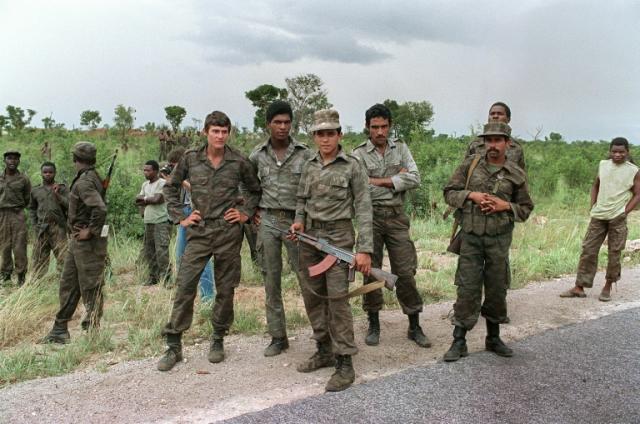
Somehow, the Rhodesians were able to carry on a semblance of normal life while horrific acts of violence were committed throughout the nation. A standout case is the shooting down of Rhodesia Flight 825 by ZIPRA terrorists. 

Throughout its brief history, Rhodesia was sanctioned & shunned by the polite society of the West. There was no formal recognition by any nation on Earth (though was some covert support). There was political drama within the nation as well.
Despite all these setbacks, Rhodesia was, for the most part, relatively secure, had one of the highest standards of living in Africa, had a high-performing currency, and notwithstanding external/internal threats, fairly firm social stability. 

Often referred to as “the breadbasket of Africa,” Rhodesia’s farms were extraordinarily productive. Abundant natural resources & a fairly self-sufficient economy made the Rhodesia experiment more successful than it would have been in a more inhospitable place. 
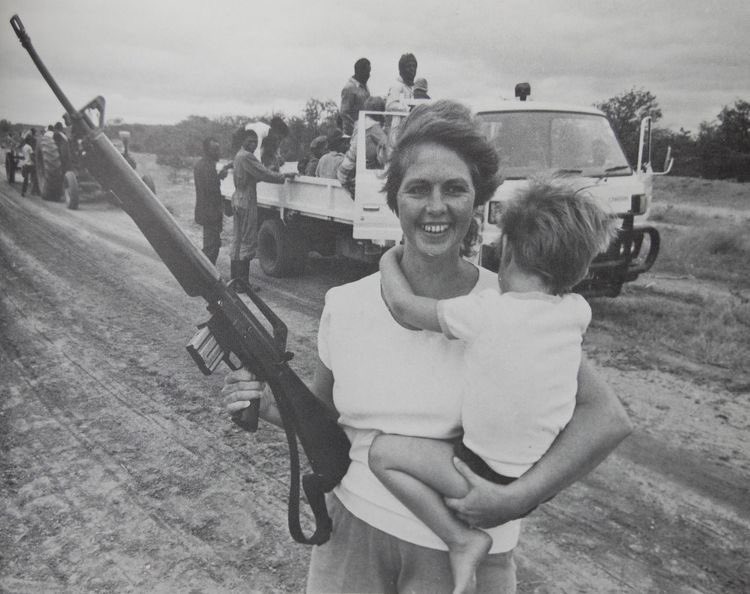
However, much of Rhodesia’s success is due to its highly elite military. The Rhodesian special forces accomplished feats that defy the imagination. Battles of ridiculous odds were fought & won by small groups of commandos. 

The Rhodesian SAS’s feats have been largely ignored by mainstream historians, but for those who are interested in special forces history, they’re unparalleled in reputation.
Eventually, the economic, social, & political pressure on Rhodesia was too much. Terrorism was rapamnt. Life became increasingly dangerous. Farm murders became widespread (much like in South Africa today). 

Concession after concession was made until the 1980 elections when the ZANU’s Robert Mugabe came to power & the RF was ousted. While peddled in the West as a moderate, Mugabe quickly made retribution on his political enemies. 

Most white Rhodesians left for the UK, SA, the US, Australia & other parts of Africa. The country went downhill at a bullet train speed. The newly named Zimbabwe is still well-known for some of the worst inflation in human history.
So what is Rhodesia’s legacy? White supremacy? Or an idyllic ethnostate serving as a beacon today? Unfortunately, Rhodesia has sort of become a cartoon - either misused by people like Dylan Roof, but more typically rhetorically abused by politicians, academia, & keyboard warriors
Rhodesia was a real place with real people, black & white, who faced insurmountable odds with a stiff upper lip. It wasn't a perfect society- but it was an oasis of calm, order, & Christianity in a sea of atheistic, Marxist oppression, death, destruction & misery. 

A main takeaway from the Rhodesia saga is the utter insanity of so-called Western democracy. Throughout the entire history of the nation, western leaders consistently turned a blind eye to real human suffering in Africa & instead, virtue signaled over Rhodesia’s voting system. 

Rhodesia was constantly singled out for its more conservative, gradual plan for incorporating Africans into its political system rather immediately. The results speak for themselves. Only recently have some African nations started to climb out of the post-colonial nightmare.
Another takeaway from Rhodesia is the blatant hypocrisy of praising post-colonial regimes murdering millions of their own people while painting a republic like Rhodesia as particularly when even those who were being discriminated against enjoyed basic freedoms, peace & security.
Rhodesia was, at its heart, a conservative state. Rhodesians were not revolutionary- they were trying to preserve a way of life they had enjoyed for nearly a century, one that had ushered in rapid economic development & bettered the lives of the local populations. 

On a personal level, Rhodesians serve as an example of how to behave under pressure. Though drawing the ire of the world, the typical Rhodesian attitude was stalwart, tough, & jovial- like Churchill’s famous quote: “I like a man who grins when he fights.” 

Rhodesia was inspiring to enough US servicemen at the time that around 300 actually signed up to serve in the Rhodesian military. 7 were killed in action. Hundreds more arrived from the UK. 

As late as this year, Zimbabwe has been designated, “the most miserable nation on earth.” How a land so full of potential & promise could disintegrate so quickly baffling. Mugabe remains synonymous with malevolent dictatorship. 

But in the long run, it’s possible that the traditionalist British society of Rhodesia may actually have the last laugh. Zambia, Malawi, Botswana & even Zimbabwe are increasingly taking cues from traditional, Christian influences over current, progressive, Western ones. 

Rhodesians can still be found throughout the world, though their numbers dwindle every day. If you come across one, ask for some stories. Let them tell you what life was like in Rhodesia. Don’t leave it to anchors & journalists- find out the truth for yourself.
For reference if you want to do a deeper dive on Rhodesia: 1: The Great Betrayal by Ian Smith. You will not find anything like a rabid racist in the pages of this book. His introductory essay is one of the best explanations of the 20th-century colonial perspective I’ve ever read.
We Dared to Win/A Handfull of Hard Men: Hannes Wessels. These books are great for a first-hand account of the Rhodesian Bush War. The stories are absolutely incredible. Wessels lives in Zambia & is fairly active online. 

Former “Rhodie” John Van Zyl has a youtube channel where he covers a lot of interesting material on Rhodesia. ()youtube.com/@fightingmenof…
Ian Smith’s appearance on William F. Buckley’s “The Firing Line” gives a fairly good articulation of what the political arguments were from the Rhodesian side:
• • •
Missing some Tweet in this thread? You can try to
force a refresh


